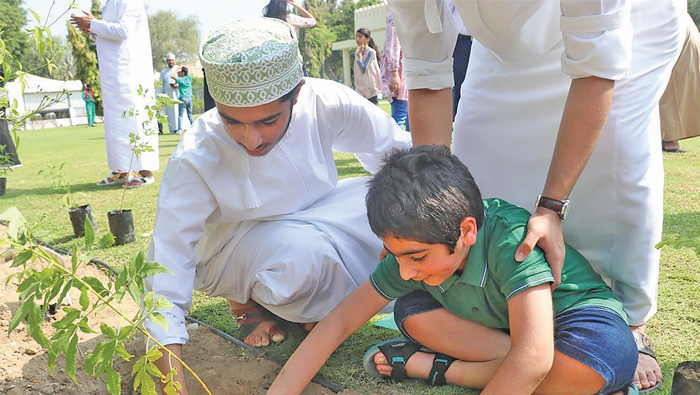
Muscat: People with developmental disorders are highly productive members of society, if they are given the right environment to thrive and are taught the correct way to respond to everyday life.
That’s the opinion of Lakshmi Sarkar, a senior occupational therapist at Khoula Hospital, which held tree-planting activities with 50 children who had developmental issues, along with their families.
This was held in conjunction with World Occupational Therapy Day, on 27 October, and included the participation of Dr Faud Al Sajwani, the Minister of Agriculture and Fisheries.
“Planting and gardening are both highly sensory activities, and because we are dealing with children who have sensory issues, most of our therapies and activities deal with exposing these children to multi-sensory experiences,” she told Times of Oman.
“Planting, as such, means children have to dig the ground by themselves, cover the earth by themselves, they have to be gentle with the plant, and all of these things are quite difficult for them, although it may look quite simple for us.
“A lot of the children, unfortunately, do not want to touch these different textures, like mud and grass and plants, so when they were watching others, they look at others and use them as social references and start doing it themselves,” added Sarkar.
“They have to be very gentle with the plants, because they don’t know how much pressure to exert on them, so they learn this way.”
“Secondly, we wanted to show the community that they are also a very productive segment of society. Even this segment is a part of society, and you have to think of these people when you plan something,” she said.
She also explained the differences between autism and SPD. “There are a few genes that have been identified that cause autism, and there is research going on, but there is no concrete evidence as to what causes it, so far,”
Sarkar said. “Earlier, we used to have a lot of small children who had SPD, but these days you see a lot of schoolchildren being affected by this, as well. This manifests in the form of depression and stress levels, and they don’t know how to control them.”